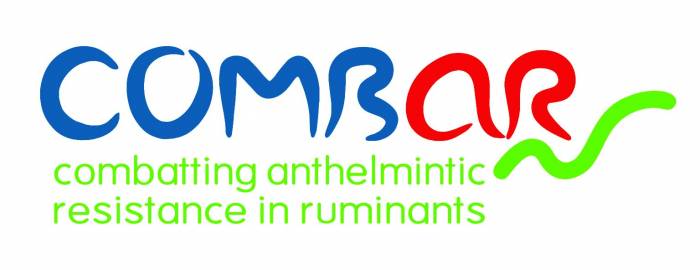10th August 2020
A major new international research study has estimated that parasitic worms cost the European livestock industry more than €1.8 billion per year, with drug-resistance costing at least €38 million per year in production losses and treatment costs. The study can support the identification of livestock sectors and regions where the largest losses occur and inform control programmes and research policies at national and European level.
Parasites can cause major welfare and productivity problems in cattle, sheep and goats worldwide, affecting growth, fertility and milk production. Worryingly, drug resistance is increasing against the veterinary medicines widely used to treat and prevent infection. This means that current farming methods may not be sustainable in the longer term.
The costs of parasitic worms to the UK livestock industry was estimated at €47 million (£42.3 million) per year in the sheep sector. The annual costs of drug resistance in the UK sheep sector was €3.5 million (£3.15 million) – the highest of all European countries included in the study. Dr Dave Bartley from the Moredun Research Institute, said “The high estimates for the UK livestock industry from the study highlight the importance of ensuring that treatments work on a farm. Routine drench efficacy testing is one way to achieve this - tests can be cost effective, identify issues early and prolong the working life of products now and for the future.” Professor Eric Morgan from Queen’s University Belfast, notes that “Parasites are not as noticeable as some other diseases but are extremely common and take a steady toll on production, even when they don’t cause obvious outbreaks. That explains the high estimated costs in this study, and reinforces the need to plan worm control carefully, and to take changing patterns of infection into account.”
Agricultural economic data was combined with the latest data on the levels of disease and drug-resistance in 18 European countries. The model is freely available as a spreadsheet and allows for future updates to take account of new information. It will be a useful tool to examine impacts of changes in parasite epidemiology, or other economic factors, on costs to the UK sheep industry.
Data were not available for all countries, and therefore the estimates are likely to be conservative. Dr Hannah Rose Vineer from the University of Liverpool also noted that “The figures for the UK sheep industry are lower than previous estimates partly because the methods used to calculate the costs were different but also because we now know more about how parasite burden affects productivity, and were able to include this in the model.”
The study was led by Dr Johannes Charlier of the Belgian scientific consultancy Kreavet, as part of a European Cooperation in Science & Technology Action, COMBAR (Combatting Anthelmintic Resistance in Ruminants). It involved a total of 23 organisations who brought together regional expertise and the latest data on the economic impacts of parasitic disease in the European livestock industry.
About COMBAR
Helminth parasitic pathogens cause severe disease and are amongst the most important production-limiting diseases of grazing ruminants. Frequent anthelmintic use to control these infections has resulted in the selection of drug resistant helminth populations. Anthelmintic resistance (AR) is today found in all major helminth species across Europe and globally.
COMBAR is advancing research on the prevention of anthelmintic (drug) resistance in helminth parasites of ruminants in Europe and disseminating current knowledge among all relevant stakeholders. By gathering parasitologists, social scientists and agricultural economists, COMBAR is bringing together a multi-disciplinary blend of scientists that normally rarely interact.
COMBAR is integrating novel developments in the field of (i) diagnostic tests; (ii) vaccines to protect animals from infection; (iii) anti-parasitic forages, (iv) selective treatment strategies and (iv) decision support tools. By evaluating those novel technologies, assessing their barriers to uptake and facilitating transfer of knowledge and technologies in a coordinated approach, COMBAR is tackling anthelmintic resistance in Europe.
Reference:
Charlier et al. (2020) Initial assessment of the economic burden of major parasitic helminth infections to the ruminant livestock industry in Europe, Preventive Veterinary Medicine, in press
https://doi.org/10.1016/j.prevetmed.2020.105103
Contact:
National contact:
SCOPS - [email protected]
Regional contacts:
Dr Dave Bartley (Scotland) - [email protected]
Prof. Eric Morgan (Northern Ireland) – [email protected]
Dr Hannah Rose Vineer (Wales & England) – [email protected]
Lead author:
Dr Johannes Charlier - T - +32 3 435 12 37, E - [email protected]
